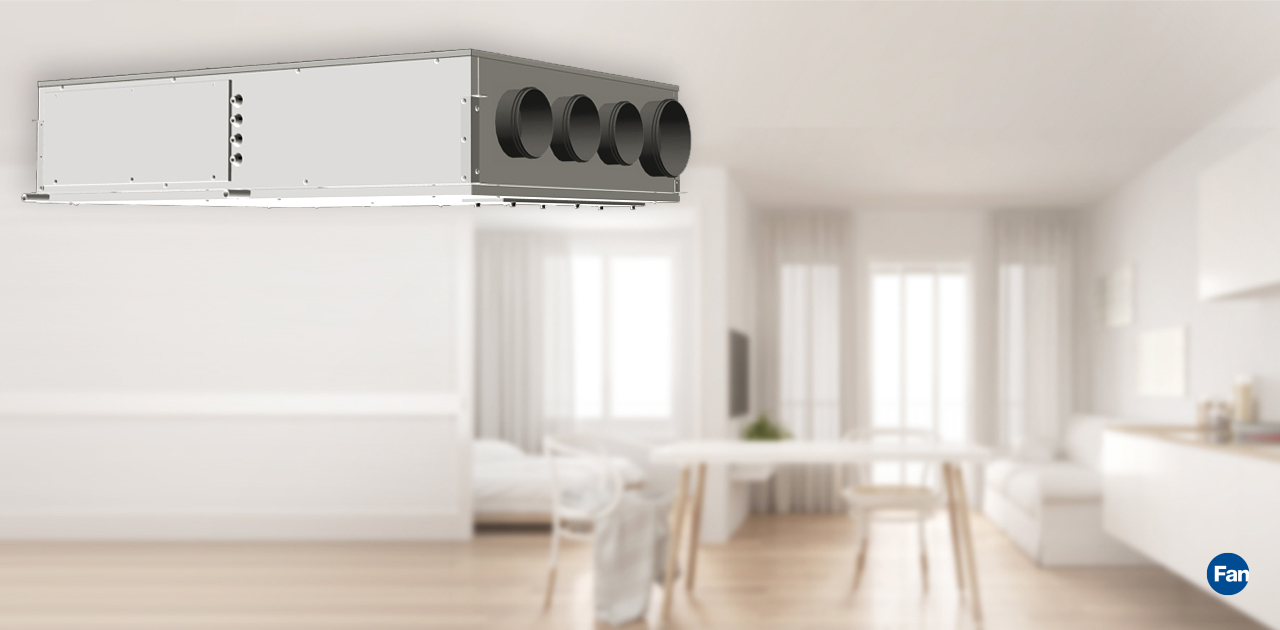The new construction methods for homes undoubtedly bring numerous advantages in terms of energy and consumption, but to ensure that the rooms remain healthy and properly ventilated, it is essential to install a controlled mechanical ventilation system which allows for the correct exchange of air and enables a high quality of air to be maintained inside.
What is controlled mechanical ventilation used for?
Controlled mechanical ventilation, or CMV, is used to ensure ventilation and maintain good air quality inside buildings. It provides fresh, filtered air while extracting moisture and stale or contaminated air. This allows a better exchange of air than could be achieved by opening the windows, both from an energy point of view and in terms of the risk of entry of pathogens or contaminants, but at the same time it also reduces noise pollution.
CMV, as the name suggests, allows controlled ventilation by deciding how much air to recycle and has a relatively low energy consumption due to continuous operation.
Also in terms of energy saving, the most advanced controlled mechanical ventilation systems are equipped with heat recovery which reduces energy loss, essentially levelling out the temperature of the outgoing and incoming air to avoid excessive heat exchange.
CMV and insulation
While in traditional constructions the exchange of air was in some way “guaranteed” by draughts and natural air circulation in general, today’s new constructions are designed to prevent this in order to reduce energy loss. This means that the supply of fresh air must be provided by exchange systems such as controlled mechanical ventilation. This does not prevent you from still being able to open the windows when you prefer, but the reality is that there are many times of the year when, depending on where in Italy you live, it is too hot, too cold, too humid, too noisy or too polluted to simply open the windows.
How to choose the perfect CMV
When it comes to choosing the type of controlled mechanical ventilation, the first aspect to take into account is whether or not a dedicated system is possible. This makes it possible to establish at a glance whether to use a a centralised controlled mechanical ventilation system or whether to evaluate the various decentralised alternatives available.
In general, for large areas, especially in the tertiary sector, the implementation of a system is necessary to achieve the right compromise between performance and operating cost.
The second aspect to consider is the surface area, or rather the volume of the rooms to be served. In the case of both centralised and decentralised solutions, the amount of cubic metres of air to be replaced is necessary for the relevant calculations. In the first case, for correct sizing of the system, in the second to determine how many independent units are needed and what type. Decentralised solutions are available for residential building, both for offices and for schools.
Another parameter to consider is consumption: as a general rule, units that operate continuously or at very low speeds for very long periods of time are more energy efficient than those that alternate between long periods of standstill and “peak” periods. Ensuring a system that also accommodates this aspect means, on average, reducing ancillary consumption.
Finally, in the modern scenario, it is taken for granted that solutions with heat recovery are also indispensable for achieving the highest energy classes in buildings.
In any case, in order to identify the most suitable type of controlled mechanical ventilation for your home, work or school environment, it is important to rely on a trusted installer who will be able to help you choose the best and most effective solution.
Would you like more information on these products?
For full details of available models click here or contact us!




